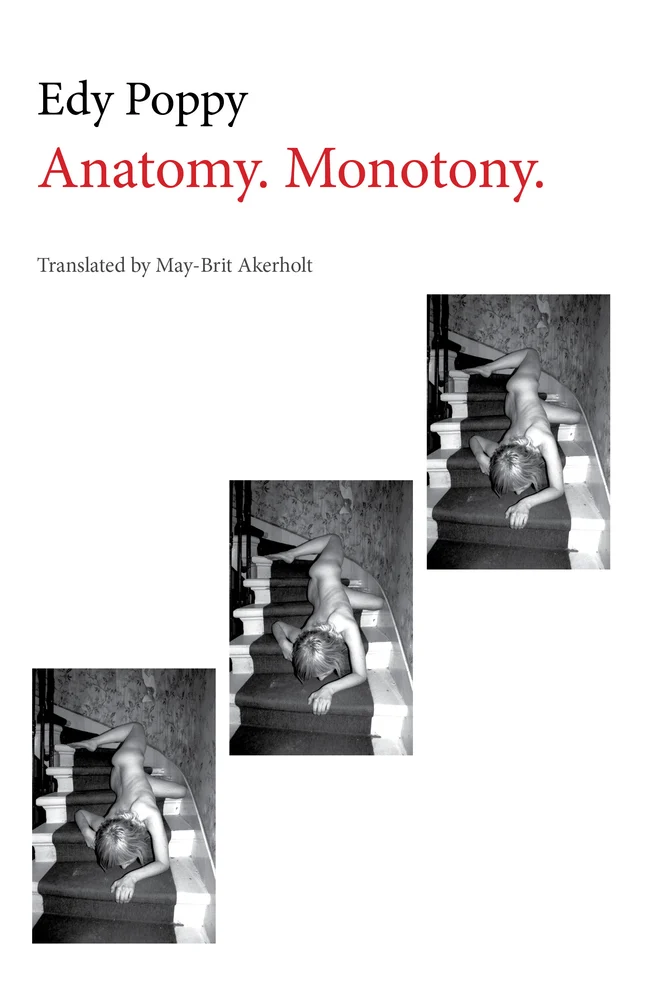Book by JOSÉ EDUARDO AGUALUSA
Reviewed by

War. Diamonds and oil and war. If in the United States we’ve heard anything about Angola, it’s likely related to the protracted bloodshed or to the trade in oil and diamonds. The seventh largest country in Africa, situated on the Atlantic coast just north of Namibia, Angola became a Portuguese colony in the 16th century. Fighting for self-government began in 1961 and went on until the 1974 Carnation Revolution and the end of the Salazar dictatorship in Portugal led to the country’s withdrawal and, in 1975, Angolan independence. This did not end war in Angola, however.
Fueled by the oil and diamond trades and Cold War politics, groups of former resistance fighters consolidated their positions and went on fighting each other. Supported by the Soviet Union and Cuba on one side and the United States and (white) South Africa on the other, the fighting in Angola went on until a key leader was killed in action in 2002, ending 41 years of nearly uninterrupted fighting.
Ludovica “Ludo” Fernandes Mano—whose true story became the basis for José Eduardo Agualusa’s novel, A General Theory of Oblivion—leaves Portugal and arrives in Luanda, Angola’s capital, months before Independence Day in 1975. She makes the move reluctantly, following her newly married sister, Odete, whose husband, Orlando, an Angolan mining engineer, works for a diamond company. A shut-in since early in her life (for tragic reasons that become clear in the second half of the novel), Ludo occupies her time cooking for the newlyweds and managing their luxury apartment on the 11th floor of a building in the center of Luanda. Life, even before the narrative turns dramatic, is a little too much for Ludo.
Proud of his country (and recognizing an opportunity to profit), Orlando scoffs at his friends who, on the eve of independence, are leaving for Portugal and Brazil. He collects what they leave behind: cars, apartments, crates of wine, sacks of foodstuffs. The night before Independence Day, he and Odete go to a party, from which they never return. In the morning, Ludo receives a call: a demand for ransom—diamonds—in exchange for her sister. Soon, men are at her door, demanding jewels. Ludo searches the apartment and finds, instead of the diamonds, a gun. She shoots through the door and mortally wounds one of the men. His companion runs away. Ludo cares for the wounded through the night and in the morning buries the body in the garden on the terrace of her apartment. Then she picks up bricks and cement leftover from an unfinished construction project and builds a wall in the hallway, blocking her front door from the rest of the apartment building. She doesn’t come out for the next 28 years.
Agualusa, a prominent Lusophone writer (he has lived in Angola, Portugal, and Brazil), has over 20 books to his name and frequently works in a hybrid genre, crafting his novels from biographies. Agualusa’s strong authorial voice drives this narrative, supporting the facts of Ludo’s biography and diary entries with seamlessly integrated fictional elements and characters. Ludo’s incredible self-isolation, which she survived by growing fruit on the terrace, catching occasional chickens and pigeons, and burning books, furniture, and even floorboards, is documented in her diaries and the writing on the walls of her apartment. Contrary to what a reader might imagine, the years of loneliness and deprivation do not turn Ludo into a hermit, but help her to re-engage with the world, to embrace it on new terms.
The world from which Ludo escapes is alien and dangerous. White and perceived as wealthy, she has become a target. Her sister is likely dead, her own life worth little. Equally weighty are Ludo’s deep-seated colonial stereotypes and racist prejudices, which are part of the reason she shirks contact with the outside world. “The African sky is much bigger than ours,” Ludo tells her sister early in the novel. “It crushes us.” She refuses to cook “black people’s things” and shuns contact with anyone who might “talk like a black.” Ludo needs to accept that the new Angola is run by black Africans, but she cannot. During early days of her seclusion, she reflects, “I don’t understand the languages I hear outside, the languages the radio brings into the house, I don’t understand what they’re saying, not even when they sound like they’re speaking Portuguese, because this Portuguese they are speaking is no longer mine.”
After the old radio fails, Ludo’s isolation becomes complete. From her terrace, she can hear gunshots and occasional demonstrations on the street and can smell her neighbors’ cooking. She comes to regret shunning their food and way of life. At this point she runs out of notebooks to keep her diary, and the narrator takes over the portrayal of her maturing consciousness. The need for warmth drives her to burn a painting of a group of Mucubas dancing, which her brother-in-law had hung on the wall.
She saw in it a distillation of everything she hated about Angola: savages celebrating something—some cause of joy, some glad omen—that was quite alien to her. Then, bit by bit, over the long months of silence and solitude, she began to feel some affection toward those figures that moved, circling around a fire, as though life really deserved such elegance.
After the painting’s gone, she fantasizes that the nail on which it had hung holds up the entire building, the entire city. She makes the decision to leave the nail in the wall.
At the end, after time and history have moved on, Ludo emerges from her apartment, rid—as she reports—of her fear. She resumes her diary: “I go out and the grocerwomen greet me. They give me a laugh as though we were family. The children play with me, they take my hand. I don’t know if it’s because I’m very old, or because I’m as much a child as they are.”
The mind balks when trying to imagine 30 years of near-total isolation. Agualusa intersperses chapters dedicated to Ludo with others relating events on the outside, giving them equal weight and connecting them to Ludo’s story. Through a cleverly constructed subplot that centers around diamonds—the diamonds that allegedly led to the deaths of Ludo’s sister and her husband—Agualusa writes a condensed history of the civil war and some of its characters.
It turns out that Orlando, Ludo’s brother-in-law, had stolen diamonds from a mining company and refusing to share them with his partner-in-crime, a Portuguese mercenary named Jeremias Carrasco. Jeremias followed him to Luanda and traced him to the Independence Day party. A car chase ensued, in which Odete, Ludo’s sister, was instantly killed. Orlando lived long enough to tell Jeremias where he hid the diamonds.
The knowledge didn’t do Jeremias any good. When he tried to collect the diamonds from Orlando’s apartment, Ludo had already walled the unit off. Outside the building, he was arrested by a squad of government goons led by the particularly ruthless Comrade Monte, who put him before a firing squad without trial. By sheer chance, Jeremias survived the execution and received the gift of a second, more rewarding life as an ox farmer. Monte went on to commit acts of increasing cruelty, saying much later to his friends that “in order to preserve the socialist revolution, certain excesses were permitted.” In one episode, a prisoner known as Little Chief takes a rat for a pet and names it Splendour. When Monte hears of this, he goes into Little Chief’s cell to taunt him, picks up Splendour, throws it to the floor, and stomps on it. This vicious act sends Little Chief into a depression that lands him in the infirmary, from where he’s eventually able to escape. After the regime change in 2002, Monte is forced to retire and becomes a private detective. He is killed when a satellite dish falls on his head: “The former state security agent, the final representative of a past which few in Angola wished to recall, was felled by the future: the triumph of free communication over obscurantism, silence, and censorship.”
Little Chief gets ahold of some of the diamonds Orlando had stolen because they are brought to him by a pigeon… and the pigeon’s story, too, is a part of Agualusa’s novel. There are other notable characters: Daniel Benchimol, a journalist who seeks out Ludo on a private investigation for a client in Portugal; and Sabalu, a homeless boy who steals into Ludo’s apartment in the last years of her isolation and ends up befriending her and being befriended by her. For a slim novel, the cast of characters is large, but each comes with a distinctive history and personality. The threads that tie them all together (the diamonds and a connection to Ludo) would feel artificial without the larger context. A country in the midst of the civil war is a place of chaos, but it is also a place where a personal connection once made (by an act of evil or kindness) is not easily broken.
As Ludo says at the end of her narrative,
Monsters, show me the monsters: these people out on the street.
My people.
Despite its somber title and theme, A General Theory of Oblivion reads like a thriller. The novel’s short chapters move at a rapid pace, with Ludo’s diary entries serving as occasional reprieves. This is the work of a seasoned novelist, deftly translated from Portuguese by the prominent British translator Daniel Hahn. For an American reader with a hazy understanding of Angolan cultural context, the novel provides an excellent opportunity to watch and question—with Ludo, from her terrace on the 11th floor—as history unfolds.
Olga Zilberbourg’s work has appeared in Feminist Studies, Epiphany, Narrative Magazine, Hobart, B O D Y, Santa Monica Review, J Journal, and other print and online publications.



